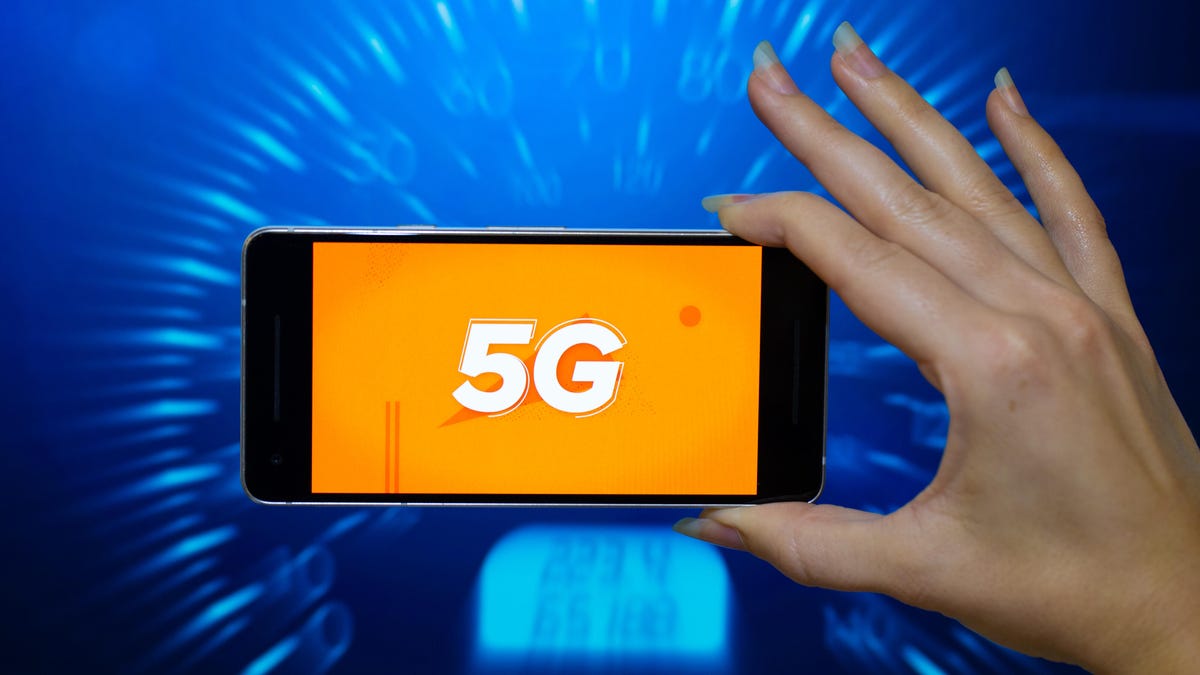Affordable 5G is coming, AT&T says
The next-generation cellular capability will be in 15 devices with the carrier this year, according to Jeff McElfresh, CEO of the telecom giant's wireless, video and broadband businesses.

Though the hype over 5G has been intense, the reality is that few people have had a chance to really experience the service. The available coverage has been hard to find over the past year, with the broader-ranging networks turning on only at the end of 2019. There've been only a handful of compatible devices, and CNET suggested you avoid many of the early ones.
But the situation is poised to change, with 5G coming to more devices, and service plans becoming more affordable.
That's according to Jeff McElfresh, chief executive of AT&T Communications, which is the arm of the Dallas telecom giant that runs wireless, home broadband and subscription video services. In an interview with CNET's Daily Charge podcast, McElfresh talked about the state of the company's 5G rollout, and why he believes the service will eventually be more accessible.
"You should not assume that 5G is an exclusive capability for the most expensive handsets, and found only in the most expensive rate plans," he said. "The speed at which the technology is beginning to make its way into the network is unparalleled."
AT&T has an incentive to get more people on 5G, a technology that promises to eventually power other trends, like telemedicine and self-driving cars. More people on 5G means more people on a better, faster experience, and less congestion on the company's older legacy networks. But at least early on, devices were expensive and you could access the service only on AT&T's top-tier plans.
McElfresh didn't get into specifics, but he said 5G would become more accessible over time. He noted that the carrier plans to launch 15 devices with 5G, which is in line with comments made to CNET in January at CES.
Though McElfresh said he doesn't see a huge impact on the network upgrade from the coronavirus, he noted that the target for nationwide 5G coverage, which uses a lower frequency band of spectrum that gets speeds only slightly higher than 4G, is now slated for the end of summer, suggesting it'll happen in the third quarter. The company previously said it would have nationwide coverage by the first half.
McElfresh did note that in places where the company needs to get a permit to reach certain cell sites, getting access is difficult, since many government offices aren't open with the lockdown in place.
AT&T has also been deploying 5G using millimeter wave spectrum, which offers the insane speeds you usually read about with this technology. It's the flavor of 5G that Verizon often talks about. If the nationwide 5G that AT&T is deploying is like a freeway, the millimeter wave variant of 5G is like the autobahn.
McElfresh focused his talk about millimeter wave 5G on business uses but noted that access to this superfast slice of the network may still be reserved only for higher end plans.
"It'll become components on some larger unlimited plans," he said.
But McElfresh said AT&T will continue to adjust plans according to how things change. And that's virtually a given, considering how much uncertainty the pandemic has brought.
"We'll definitely be reactive to the way the market responds," he said.
Though McElfresh didn't get too deep into whether the crisis would hamper consumer demand for 5G, he acknowledged mainstream adoption would take a while.
"The transition isn't going to be a light switch," he said. "It will take some time."

